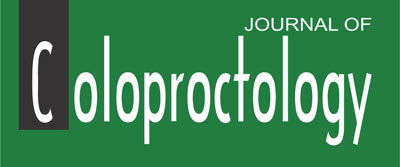Paracoccidioidomycosis (PBM) is an infection caused by a dimorphic fungus called Paracoccidioides brasiliensis. It occurs in Latin America, with incidence of 1 to 3 per 100,000 inhabitants in endemic areas. The digestive tract is usually not affected, but when it occurs, it may lead to events similar to colorectal neoplasm and inflammatory bowel disease (IBD). This is a case report of a 68-year-old female patient, with diarrhea without blood or mucus for 6 months, weight loss of 8 kg over the period. Abdominal ultrasonography showed some mass in the right colon, suggestive of cancer and liver perihilar lymph node. Colonoscopy showed lesions suggestive of Crohn's disease. Biopsy showed chronic granulomatous colitis of fungal etiology: Paracoccidioidomycosis. The patient did not tolerate oral treatment with itraconazole and subsequently sulfadiazine, requiring hospital admission for the treatment with amphotericin B. The presence of Paracoccidioidomycosis in the digestive tract may be associated with bloody diarrhea, mucus, rectal hemorrhage, abdominal pain, malabsorption syndrome. Histopathological studies show the fungus and a chronic inflammatory infiltrate and granulation tissue. The differential diagnoses are tuberculosis, colorectal cancer and inflammatory bowel disease. The treatment is oral antifungal (itraconazole, sulfadiazine) or intravenous (amphotericin B) based. The case has caused diagnostic confusion between colon cancer (clinical and US) and Crohn's disease (colonoscopy).
Paracoccidioides; mycoses; colitis; amphotericin B




